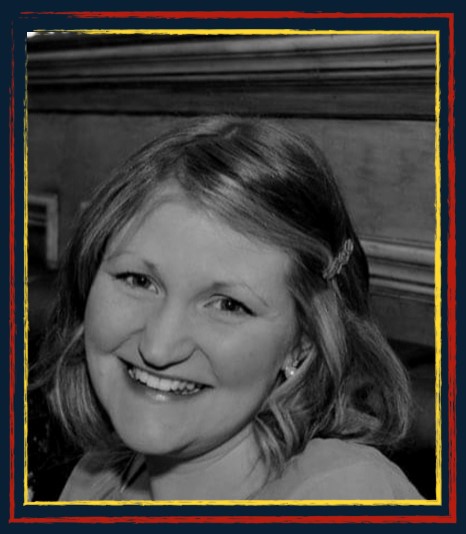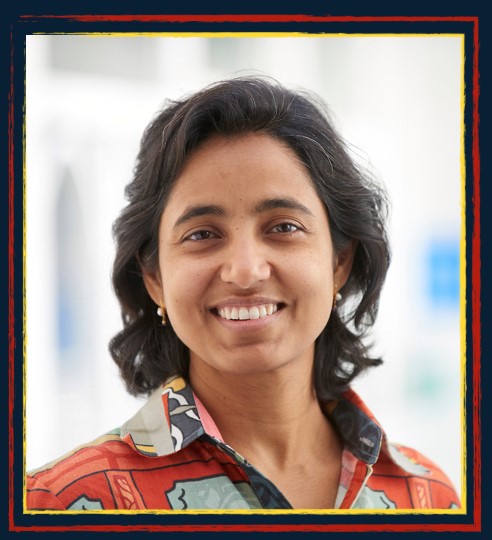
Ms Karen Booth
Consultant Cardiac and Transplant Surgeon at Freeman Hospital, Newcastle
What has been your route into Cardiothoracic surgery and what led you to choose your specialty?
I came into cardiothoracic surgery by accident, I was offered a placement in Cardiothoracic surgery as a core surgical trainee for six months and once I started, I couldn’t leave! I didn’t look back from that moment, having never seen the specialty before I was truly hooked.
What is something that you’re passionate about and what keeps you motivated to pursue this?
I am passionate about improving the treatment and access to complex aortic disease for our patients. I really feel this is a treatment area underserved within our specialty and I love the long-term relationship you can develop with your aortic patients as you treat their whole aorta. It requires collaboration with vascular and interventional radiology, and I most enjoy the multi-disciplinary teamwork required.
What do you love the most about your job?
Serving patients as a team. There is nothing greater than the whole theatre team coming together, knowing how important an operation is to each and every patient and striving to do their best for them.
What are some of the challenges that you have encountered? How did you overcome them?
Cardiothoracic surgery is an incredibly challenging specialty to both train and practice in. It is a subject not spoken about enough. We experience patient deaths more than any other specialty and yet we are not trained to cope with the anguish this brings or the dysfunction you sometimes train and/or practice in.
It is important to be resilient in this specialty, you need to have a strong and stable home life with a support network who value your career and ambition. Ultimately in life all careers end and it is our friends and family who cherish us the most. Enjoy you work, do it to the best of your ability but remember what is important and do not get lost in the hype that is Cardiothoracic Surgery.
Do you have any role models? Why are they role models to you?
I have many role models I have worked with or admired over the years. My most cherished are my mentors and supporters who continue to keep in touch, keep me grounded and give me healthy discussion when challenges come my way. You are never alone in this specialty even though you practice independently it is really important to always double check your decisions and be open and honest so that the care you provide is of the highest quality to the patients you serve.
What do you enjoy doing outside of work?
Spending time with my husband and children. We love to go on holiday together, spend time cooking and exercising and also supporting one another in our hobbies and interests.
What is your favourite quote/mantra in life?
I am in Competition with no one. I have no desire to play the game of being better than anyone. I am simply trying to be better than the person I was yesterday.
What advice would you like to give (female) students/trainees?
Go for it! Don’t accept a life less than your male counterparts who all expect to have a career, family life and hobbies. Remember to take support, you will need it and in return this support onto others who come behind you.
What can we all be doing to encourage and support women in this field?
Be honest about our experiences, it is okay to talk about them. We can only learn from sharing our experiences and helping one another.

Miss Rashmi Yadav
Consultant Cardiac Surgeon at Royal Brompton Hospital, London
What has been your route into Cardiothoracic surgery and what made you choose your specialty?
I grew up in a small town in India where my mum was an obstetrician. I was struck as a young child by the respect and admiration afforded to my mum in the community and was inspired to follow in her footsteps. I studied Medicine at Christian Medical College in Vellore, South India. I went through medical school wanting to be a physician but fell in love with surgery in my first surgical job as a house officer. I enjoyed working with my hands and found it rewarding to see the immediate impact of my work. I got married after my house jobs and moved to the UK. I passed the PLAB exam and started work as a SHO in Orthopaedic surgery. I was then appointed to the Hammersmith surgical rotation and as part of the rotation came to the Brompton Hospital. As a SHO at the Brompton, I was assisting for subclavian flap aortoplasty for coarctation of the aorta. As the operation unfolded in front of my eyes, I was mesmerised by the beautiful repair and the skill of the surgeon. I found the exacting technical expertise needed to be a cardiac surgeon, exciting and inspiring in equal measure. It also hadn’t escaped my notice that in Cardiothoracic surgery, I was surrounded by registrars, senior registrars and consultants who were highly skilled, very intelligent and high achievers. I wanted to be part of this elite group of surgeons. I also enjoyed being able to manage the haemodynamics of a patient on the Intensive Care Unit and this job took away my fear of the “sick patient”. For all of these reasons, I decided to pursue a career in Cardiothoracic surgery. On completion of my SHO rotation, I did a PhD and at the end of my research period, was appointed as a National Trainee on the North West Thames rotation in London. I was appointed as a locum Consultant in 2011, completed a fellowship in Minimally Invasive Cardiac Surgery at Robert Bosch Krankenhaus in Stuttgart and was appointed as a substantive consultant at the Brompton Hospital in April 2013.
What is something that you’re passionate about and what keeps you motivated to pursue this?
I am very passionate about two quite different aspects of cardiac surgery: the need for a high level of technical expertise and the ability to care for patients. I find my daily work to be a beautiful combination of both of above and love the fact that my job requires me to be skilful with my hands and gentle and caring with my heart. A constant pursuit of technical excellence motivates and also fulfils me. I find it fascinating and humbling that there is so little room for error in cardiac surgery. In the operating room, life can depend on a single decision or one stitch and in this specialty, one needs to be both quick and meticulous. Cardiac surgery has been described as “plastic surgery on the clock” and I couldn’t agree more. I am equally motivated and replenished by the surgeon-patient relationship. The trust and confidence patients have in their surgeon is truly humbling and motivates me to give my very best. It is a gift that my job allows me to be warm and empathetic and make a difference to peoples’ lives. I feel enriched by these human interactions, and find that being a surgeon is a great privilege.
As a cardiac surgeon, I am also always learning and never bored. I am constantly pursuing newer, less invasive ways of treating heart disease and it is really exciting that as an established consultant of 10 years I still have the opportunity to learn new skills – it indeed is a wonderful and rejuvenating job.
The other special aspect of my job is that I work with talented and caring professionals who are all passionate about their work. I also gain much satisfaction from teaching trainee surgeons, particularly talented young women.
What do you enjoy doing outside of work?
I love spending time with my two daughters, who are the light of my life. We go for long walks, cook and bake together, sing, dance, make tiktoks, watch TV (The Crown has been a recent favourite), crochet, knit, stitch, chat, walk a borrowed dog every Sunday and just have an amazing time together. I have always wanted to learn the piano and I am able to devote some time to it, now that my daughters are older. I have also recently discovered “hot yoga” and find it a great way to exercise and relax my mind at the same time. My husband is a foodie and as a family we love to travel and enjoy different cuisines and cultures.
What is your mantra in life?
I believe that genuine, honest and high quality relationships at home and at work, with friends and with colleagues are the key to happiness and fulfilment. I am also a great believer in hard work. When I had my second child, and was facing difficult choices as a mother of young children and a trainee cardiac surgeon, I received the following advice from one of my trainers. He said, “When you need help from someone don’t ask for it. Create an environment through hard work, effort and dedication that makes the other person want to help you”. This wonderful piece of advice became my mantra and has always helped me at the most difficult times of my career.
What advice would you like to give (female) students/trainees?
I would advise students and trainees to be excellent at your work, work as hard as you possibly can and be 100% reliable. Believe in your abilities and know that the rewards will be very worthwhile. Cardiac surgery is a truly fabulous job and those of us who started before you are here to help you along the way and make your journey easier. So go for your dreams! Never underestimate the value you bring to your profession as a woman nor the satisfaction and happiness professional excellence will bring to your life. Create networks at home and at work to support you and your family and find the work-life balance that is right for you.
What can we all be doing to encourage and support women in this field?
WiCTS is a great initiative and support system for women in Cardiothoracic surgery. The first thing for young women is to see what is possible, to realize that they don’t have to sacrifice family to have a career. With the right support and guidance, they can have both if they wish. It is equally important for young women to own all of their strengths including their feminine and softer qualities and know that they can succeed in this field just as they are, without the need to change the core of who they are.
They should be offered management and leadership coaching. I would encourage all trainees to do a strengths profiling and leverage their top strengths to succeed in this challenging but rewarding speciality. As a group of women surgeons, we also need to identify and speak out about conscious and unconscious biases we face. It is known that the conventional leadership qualities of ambition, confidence and authority may be viewed negatively coming from women. The first step to dealing with this dichotomous treatment is to call out these biases and work towards addressing them. It is also important to model different ways of leading, with empathy, kindness and collaboration and know that with time, these can be equally, if not more effective.
Another indispensable tool is networking with other women, and we should enable these networks and mentoring systems. Not all of these need to come from within healthcare. Some of my best advice came from mums at my daughter’s horse-riding class, an incredible group of empowered and capable women, civil servants and lawyers, who shared very insightful perspectives from their respective (maledominated) fields. I learnt some invaluable strategies and they became my informal support network outside work.